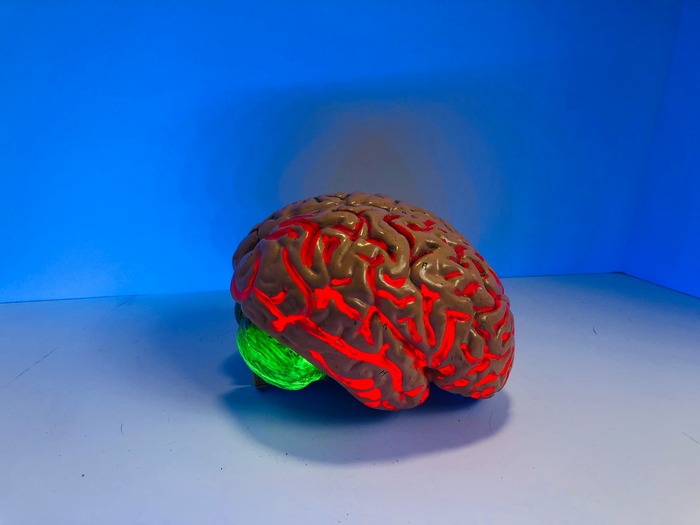The evolving story of artificial intelligence demonstrates how artificial systems achieve outstanding results against human intellect at its deepest level. The evolution of machines detects human cognitive abilities while experts wonder which mental capacities remain exclusively human and outside the range of artificial devices.
As AI advances, it’s important to remember that human intelligence, with its creativity and emotional depth, still stands apart. To see where you stand, you can test IQ online and discover the unique strengths of your mind that AI can’t match.
The Symphony of Human Intelligence
Intelligence within human beings results from several intertwined components which include creative ingenuity along with emotional capabilities and abstract thinking abilities and moral judgment skills.
Humanity derives its original invention capabilities from empathy which connects communities while using ethical discernment to direct proper decisions. The diverse aspects of human intelligence give people the ability to handle intricate social situations while creating lasting artistic pieces and contemplating beyond empirical evidence.
AI’s Calculated Precision
Within its defined operational scope artificial intelligence exists. With an unmatched capability to sort massive data amounts, AI functions as an outstanding expert in data processing technologies. AI systems use its own operating parameters to report standardized patterns and perform accurate outcome predictions and task automation.
The system maintains its precision range only within the boundaries of data input and program-defined conditions. The systems lack inner self-knowledge and sense of identity and miss the holistic value acquired through the process of living.
The Chasm Between Human and AI Reasoning
Research conducted in recent times has revealed major differences in how humans reason compared to AI capability levels. The special IQ tests developed for Artificial Intelligence systems show that machines lack certain reasoning competencies.
Tasks that need to understand context work with ambiguous situations and adapt flexible knowledge across different situations prove difficult to AI systems. The ability of AI systems stops at well-defined controlled environments, whereas dynamic practical situations reveal their shortcomings in terms of adaptive thinking with common sense.
The Essence of Creativity and Emotional Intelligence
Human beings bring exceptional skill to creative fields and emotional domains which are vital sources of personal significance.
Through their experience with human culture and life and their deep sense of human nature, humans generate artistic and literary creations that stir intense emotions that incorporate personal experiences and cultural factors.
The creative process at AI generates pattern-based results through data analysis while being devoid of human intrinsic motivation together with emotional engagement and personal subjective values.
Ethical Judgments and Moral Reasoning
The gap between humans and machines widens thanks to ethical situations. People analyze complicated moral systems when they consider both the effects and established community rules alongside their standards.
Our judgments are frequently shaped by our emotional responses together with our cultural orientation and our selected philosophical principles.
AI functions without moral awareness because it relies on algorithms together with data to create decisions that lack knowledge of ethical standards. AI faces deployment difficulties when officials intend to use it for tasks that need ethical discretion.
Learning from Sparse Data and Generalization
Human beings learn effectively from limited information while applying general knowledge to multiple different situations. A child needs only a handful of dog viewings to capture the concept properly which leads them to identify dogs in different forms and conditions.
The learning process for AI systems demands substantial datasets to achieve competence, although they display restricted capabilities to transfer knowledge between different tasks. Eventually, this difference demonstrates how humans learn flexibly while AI operates inside structured frameworks.
The Uncharted Territories of Human Experience
Human intelligence demands integration with sensory experiences alongside conscious perception as well as personal comprehension. Human beings have an exclusive capability to analyze their mental processes and doubt their existence while looking for meaning in life.
Through its designed functions, AI functions without mental awareness. It only generates outputs and processes inputs. AI functions through its programmed instructions without knowing or desiring anything while remaining wholly unaware of its surroundings.
The Synergy of Human-AI Collaboration
Human intellect joins forces with artificial computing capabilities to produce tremendous opportunities but AI remains restricted from reaching all the levels of human intelligence.
AI enables humans to apply their analytical abilities and pattern detection skills, for which humans integrate their decision-making abilities and creative thinking alongside ethical guidelines.
The collaborative effort enables individuals to develop innovative improvements through a combination of computer precision and human-accumulated knowledge.
Conclusion: Celebrating Distinct Intelligence
The changing environment demands appreciation for the unique character of artificial and human intelligence. AI continues proving the power of human knowledge because it stretches human capacity while testing our comprehension of intelligence.
We remain exceptionally unique because of our abilities to create, feel deeply, reason morally, and maintain consciousness, even though artificial intelligence raises new horizons in human potential.
Technology will expand human abilities when society accepts distinct human and artificial intelligence traits during technological development.

